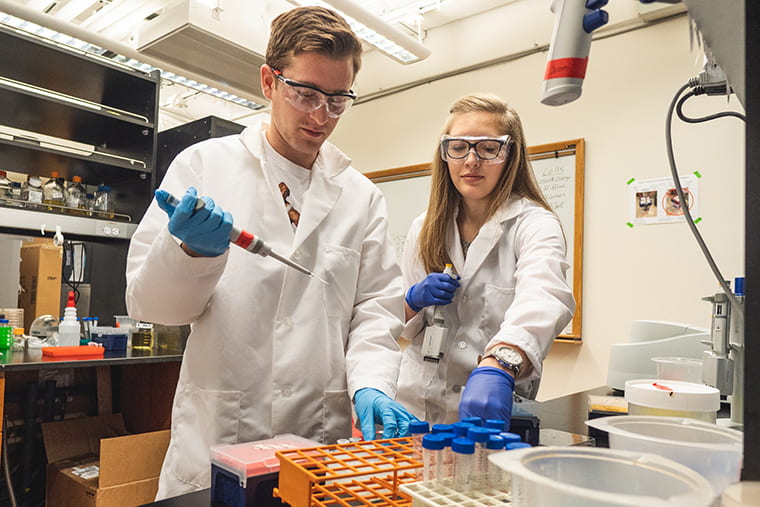Researchers in the laboratory of Meredith Jackrel, assistant professor of chemistry in Arts & Sciences at Washington University in St. Louis, discovered that proteins implicated in Ewing’s sarcoma and liposarcoma can be dissolved by protein disaggregases, a finding that could be used to combat disease. The new research is published in the Journal of Biological Chemistry.
Jackrel and the researchers in her lab are interested in understanding how protein misfolding occurs, how it can lead to disease, and how protein-remodeling factors can prevent or even reverse misfolding.
Two of the proteins they had been studying because of their involvement in amyotrophic lateral sclerosis (ALS, or Lou Gehrig’s disease) also are implicated in Ewing’s sarcoma, the second-most common pediatric bone cancer, as well as liposarcoma. The same portion of the protein that drives misfolding in ALS also can become improperly translocated to transcription factors at the chromosomal level. These translocated proteins do not function properly, which may drive sarcoma.
